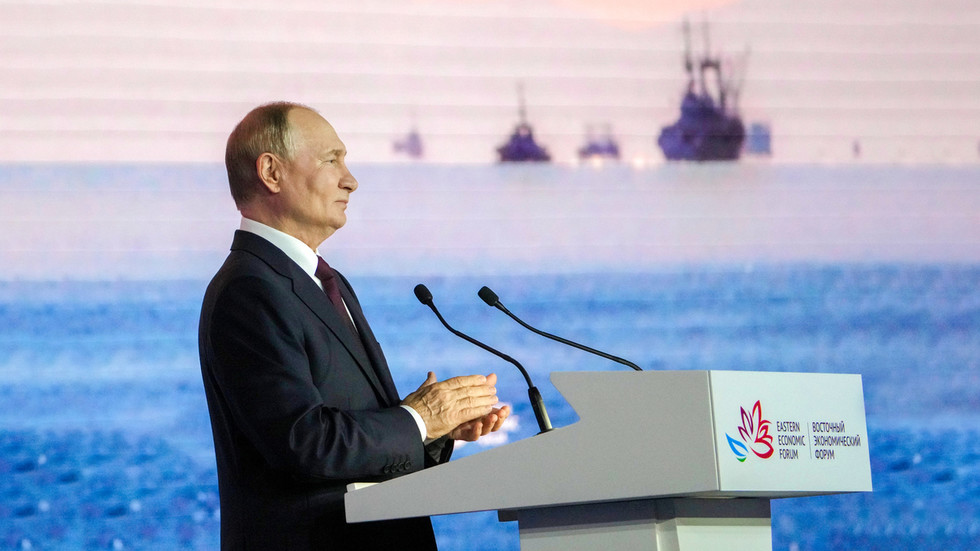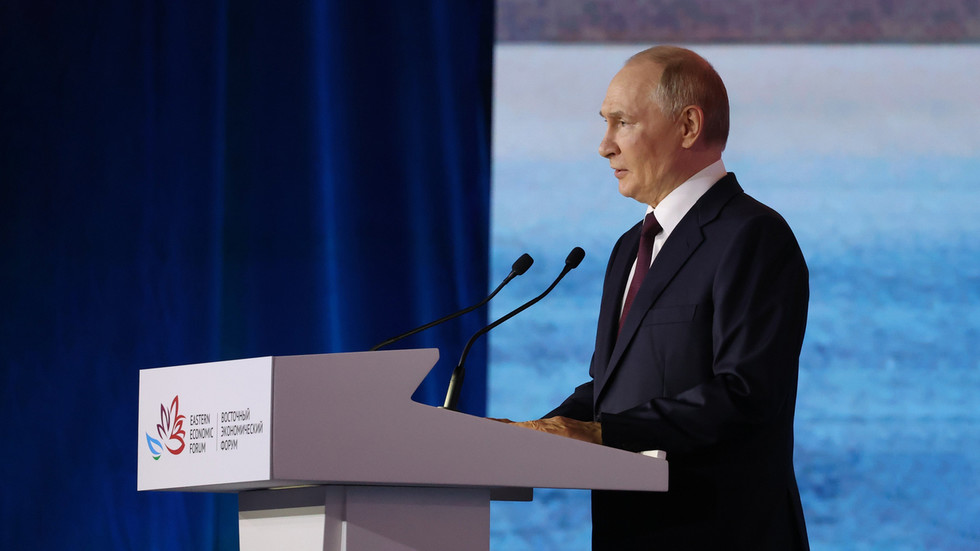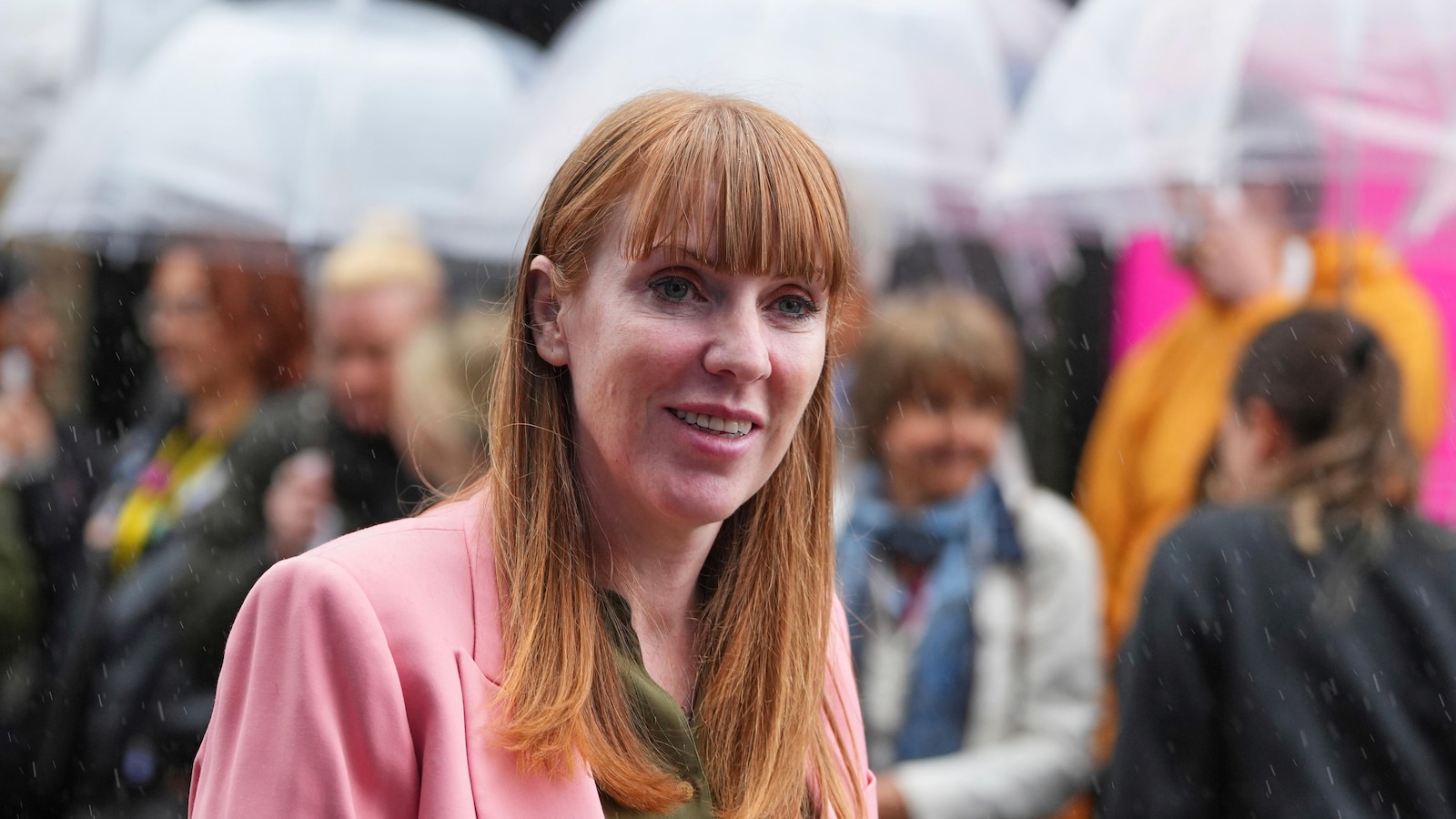The last time conductor Valery Gergiev performed in Europe was at La Scala opera house in Milan on 23 February 2022, just hours before the full-scale Russian invasion of Ukraine began.
The longstanding ally of Russian President Vladimir Putin, then refused to condemn the invasion and was widely rejected by the European establishment.
He was dismissed from directing the Munich Philharmonic Orchestra, expelled from his position as a member of the Royal Swedish Academy of Music, and had concerts cancelled in France and Italy. In Russia, he retained his prestigious roles as the head of the Bolshoi Theatre in Moscow and the Mariinsky Theatre in Saint Petersburg.
Despite the ongoing war in Ukraine, the conductor – who is one of Russia’s most powerful cultural figures – is set to return to the European stage to perform at Un’Estate da Re festival in Campania, southern Italy, on 27 July.
Defending the decision, president of Campania regional council and member of the centre-left Democratic party, Vincenzo De Luca, said Gergiev’s performance would keep “channels of communication open even with those who do not think like us”, while cancelling it would “fuel the rivers of hatred".

Other Italian representatives and Russian opposition figures have criticised the decision and warned that opening a door to the composer sets a dangerous precedent.
Gergiev’s performance will turn the festival into “a sounding board for Russian propaganda", said Culture Minister Alessandro Giuli, appointed by far-right leader Georgia Meloni.
Widow of late Russian opposition leader Alexei Navalny, Yulia Navalnaya, said the conductor’s appearance would be “a gift to the dictator [Putin]”.
“The terrible and devastating war in Ukraine continues,” she said. “How is it possible that in the summer of 2025, three years after the start of the conflict in Ukraine, Valery Gergiev, Putin’s accomplice and a person included on the sanctions lists of several countries, was suddenly invited to Italy to participate in a festival?”
‘Disingenuous’
Of all the pro-Kremlin artists impacted by a Europe-wide boycott in the past three years, Gergiev is the most synonymous with the Russian establishment.
“It’s hard to think of another figure who is more central than him in terms of the cultural and political structures of Russian music,” says Dr Dan Elphick, Lecturer in Musicology, Royal Holloway, University of London.
“Gergiev is extremely close to Vladimir Putin on a personal level, beyond any other political affiliation. That said, he has not shied away from expressing his political support for Putin publicly.”
Despite his close affiliation with the Russian leader, it is rumoured that Gergiev could also return to stages in Spain in 2026 – and the composer is not the only controversial Russian artist being championed by the European establishment.
Internationally renowned soprano, and Gergiev protégée, Anna Netrebko will return to London’s Royal Opera House for the first time in six years in September 2025, to open its season with a new production of Puccini’s “Tosca”.
Netrebko was a vocal Putin supporter prior to Russia’s invasion of Ukraine and celebrated her 50th birthday by performing at the Kremlin. She cancelled concerts around the world following backlash to a statement in 2022 in which she condemned the war but stopped short of criticising the Russian leader.

A follow-up statement distancing herself from Putin saw her reinstated in European venues including La Scala, the Berlin State Opera and the Paris Opera – where she has been met with protests and booing from audiences, but also standing ovations and positive reviews.
When Netrebko takes to the boards in London, and then at the Zurich Opera in November, it will mark an almost complete comeback to the world’s leading stages – with the exception of the Metropolitan Opera in New York.
The Met’s former prima donna has not appeared in the concert hall since 2022, due to what general manager Peter Gelb described as her “disingenuous effort to distance herself from the Russian war effort”.
'Forward'
Netrebko’s case poses the question of how cultural venues should respond to high-profile Russian artists with ambiguous political views at a time when European leaders are calling for further sanctions against Russia.
In the fine art world, visitors were confronted with the same dilemma at the 2025 edition of the annual art fair, Art Basel, which included seemingly pro-military paintings by Russian artist Erik Bulatov.
The June show in Switzerland featured two towering paintings by the artist both depicting the Russian word “ВПЕРЁД” meaning “forward” produced in the style of a traditional Soviet propaganda poster.
To display this content from Instagram, you must enable advertisement tracking and audience measurement.
The Forward II diptych was completed in 2016, two years after the Russian annexation of Crimea.
Bulatov, who has lived in Paris since 1991, has not made any public comment on Russia’s war in Ukraine, which is perhaps understandable. Outspoken opposition to Putin is dangerous, even for Russians who live overseas.
On the other hand, opting out of politics by taking a ‘neutral’ position – as Netrebko initially tried to do – could be read as a tacit endorsement of the Russian invasion.
According to the Swiss gallery that represents Bulatov, his paintings are “totally removed from partisan positions”.
But, their visual reference to Soviet military propaganda and imperialism was seen by some in Basel as – at the very least – a crass inclusion by curators, and at worst, an endorsement of Russia’s pursuit to claim more Ukrainian territory.
“The only way Russia should go is back”, read a sign held aloft next to the artworks by one Ukrainian activist.
“Russia is a terrorist state” wrote another on the gallery floor.
Soft power
Part of the concern over European cultural venues reinstating prominent Russian artists – especially those aligned with Putin – is that it could open a door to Russian influence in Europe.
“Gergiev is part of a deliberate Kremlin strategy. He is one of their cultural envoys to soften Western public opinion,” European MP and member of Italy’s Democratic Party, Pina Picierno, told the BBC.
In short, promoting an image of Russia, and Putin, that is linked to cultural excellence distracts from what its soldiers are doing on the battlefield - including accusations that they are committing cultural genocide in Ukraine.
At the same time, there is the danger that a blanket ban on all Russian artists conflates Russian culture as a whole with the Kremlin’s current politics.
“There are sensitive questions around what a cultural boycott achieves,” Elphick says. “Dropping Tchaikovsky doesn’t materially serve the war effort, but the refusal to work with artists linked to Vladimir Putin seems more cut-and-dry.”
Until now, European cultural institutions have been broadly aligned in walking this tightrope by sidelining Putin’s allies and showcasing Russian artists that oppose the Kremlin.
For instance, self-exiled Russian theatre director Kirill Serebrennikov will, in October, stage a production of Shakespeare’s Hamlet at Paris’s Chatelet Theatre, in multiple languages including Russian.
Serebrennikov is an LGBT activist and vocal critic of the Kremlin who spoke out against Russia’s 2014 annexation of Crimea. He was later placed under house arrest for 18 months on fraud charges that were widely considered to be politically motivated.
But, with the war in Ukraine now in its third year, it remains to be seen whether the lure of Russia’s big names will break Europe’s stance. Will Gergiev’s return be a bell-weather or an outlier?
An answer may lie with former darling of the ballet world, Sergei Polunin.
The one-time star of UK’s Royal Ballet was born in Ukraine but considers himself Russian. He was blacklisted in Europe for his support for the Kremlin after the full-scale invasion of Ukraine, which included helping organise donation drives for Russian soldiers.
A dedicated supporter of Putin – with three tattoos of the Russian leader’s face on his body – Polunin was, in 2019, granted prestigious roles by the Kremlin, including the directorship of a new opera and ballet theatre in Sevastopol, Russian-annexed Crimea’s biggest city, where he was also named the head of a dance academy.

But in August 2024, he was replaced in both roles, possibly in relation to a social media post in which he said he felt “very sorry for people” in the heavily bombarded village near Kherson where his family grew up, and urged Putin to end the fighting.
Polunin, who also has a tattoo of a Ukrainian trident on his right hand, announced in December he was leaving Russia with his family, after previously claiming he no longer felt safe there.
It remains to be seen whether the former Putin admirer with a newly softened stance on the war in Ukraine will be welcomed back on to European stages. The star has yet to announce any international performances.










 English (US) ·
English (US) ·